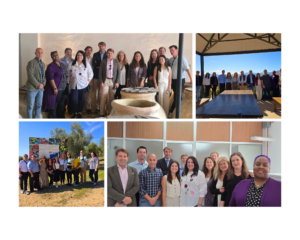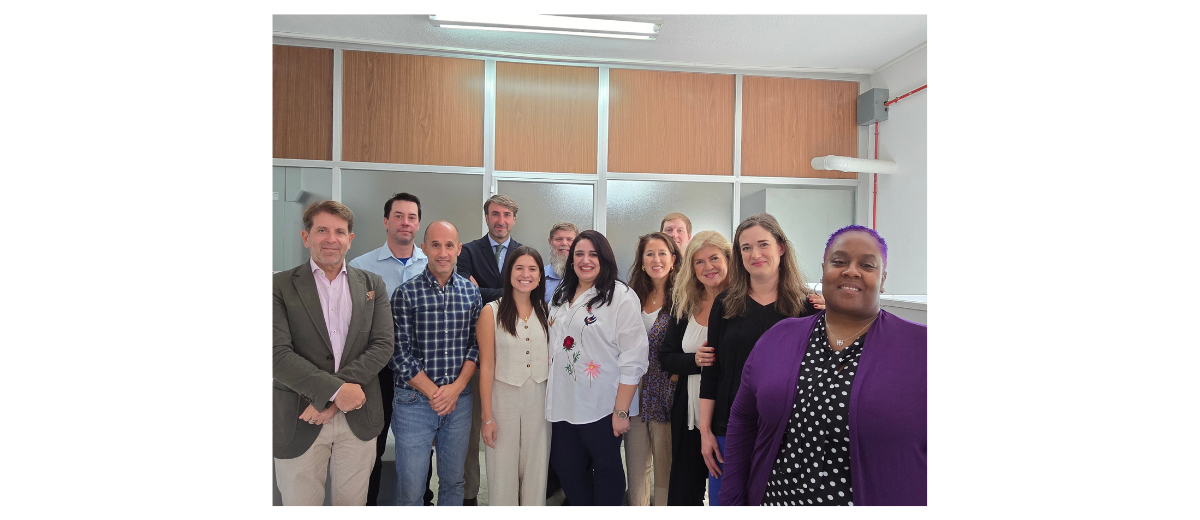Aimed at stakeholders in the olive sector in the United States—the world’s largest importer of olive oil—the event took place from 21 to 25 October 2024 in Andalusia.
The International Olive Council (IOC) hosted a five-day theoretical and practical course titled “Quality and Authenticity of Olive Oils,” designed to enhance the dissemination of IOC standards and share expertise in the physicochemical analysis and organoleptic assessment of olive oils.
This course was tailored for representatives from the United States Department of Agriculture (USDA), the Culinary Institute of America (CIA), and the Olive Center at the University of California, Davis. The involvement of these partners underscores the growing interest among American stakeholders in the IOC’s trade standards for olive oils.
The event was coordinated by the IOC’s Standardisation and Research Unit team, including Mercedes Fernández Albaladejo (Head of the Unit), Yousra Antit (Head of the Oil Chemistry Department), and Rocío Villen (Head of the Data Section). Additionally, two IOC experts in olive chemistry and organoleptic assessment, Wenceslao Moreda and Plácido Pascual, led various sessions throughout the course.
 Participants engaged in a rich and comprehensive five-day programme designed to enhance their understanding of key issues, such as the factors influencing the quality of virgin olive oil and quality and purity criteria, while also learning about the sensory analysis of virgin olive oils. The group participated in tasting sessions of recently produced extra virgin olive oils from the 2024/25 crop year and visited the world olive germplasm bank at the IFAPA (Andalusian Institute of Agricultural, Fisheries, Food, and Organic Production Research and Training) Alameda del Obispo in Córdoba, as well as some of the region’s leading producers. The American representatives even had the chance to join in the celebration of the harvest’s first day.
Participants engaged in a rich and comprehensive five-day programme designed to enhance their understanding of key issues, such as the factors influencing the quality of virgin olive oil and quality and purity criteria, while also learning about the sensory analysis of virgin olive oils. The group participated in tasting sessions of recently produced extra virgin olive oils from the 2024/25 crop year and visited the world olive germplasm bank at the IFAPA (Andalusian Institute of Agricultural, Fisheries, Food, and Organic Production Research and Training) Alameda del Obispo in Córdoba, as well as some of the region’s leading producers. The American representatives even had the chance to join in the celebration of the harvest’s first day.
IOC’s Executive Director, Jaime Lillo, participated in one of the technical visits, taking the opportunity to discuss and exchange views with course participants. This blend of lectures, discussions, and field visits created a unique opportunity for the IOC to strengthen its connections with the American sector and promote awareness of its mission and standards.
The event served as an ideal platform to reinforce the global adoption of IOC standards. The participation of significant stakeholders such as the USDA, CIA, and UC Davis highlighted the importance of quality control and the implementation of standards in increasing consumer awareness of olive oil’s benefits.
By fostering international dialogue on the quality and authenticity of olive oils, the IOC continues to strengthen the global olive oil industry, ensuring that producers, consumers, and experts contribute to a shared vision of excellence.










